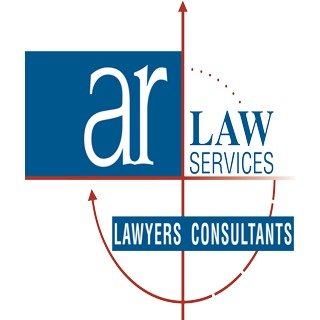Best Disability Lawyers in Australia
Share your needs with us, get contacted by law firms.
Free. Takes 2 min.
Or refine your search by selecting a city:
List of the best lawyers in Australia
About Disability Law in Australia
Disability law in Australia is designed to support individuals with disabilities, ensuring they have equal opportunities and are free from discrimination. The cornerstone legislation for disability rights in Australia includes the Disability Discrimination Act 1992 (DDA), which promotes access and fairness across various areas such as employment, education, and public access. Additionally, the National Disability Insurance Scheme (NDIS) provides individuals with disabilities tailored support to enhance their quality of life.
Why You May Need a Lawyer
There are several situations where you might require legal assistance related to disability matters in Australia:
- Discrimination: If you face discrimination in employment, education, or access to services due to a disability, legal guidance may be necessary.
- Social Security: Navigating applications and disputes related to the disability support pension can be complex without legal help.
- Access and Inclusion: Legal interventions might be required if public spaces or services are not appropriately accessible.
- Negotiating and Managing NDIS Plans: Legal advice can assist with disputes or negotiations regarding your support plans under the NDIS.
- Guardianship or Administration Matters: Legal representation might be needed when dealing with matters relating to decision-making capacity.
Local Laws Overview
Several pivotal laws and legislative frameworks are critical to understanding disability rights and obligations in Australia:
- Disability Discrimination Act 1992 (DDA): This Act seeks to eliminate discrimination against persons with disabilities and promote acceptance of their equal rights.
- National Disability Insurance Scheme Act 2013: Establishes the framework for the NDIS, providing support for individuals with significant disabilities.
- Australian Human Rights Commission Act 1986: Facilitates the investigation and resolution of complaints about disability discrimination.
- State and Territory Legislation: Each region may have its additional laws supporting disability rights, such as the Disability Services Act in each jurisdiction.
Frequently Asked Questions
What is the definition of disability under Australian law?
The Disability Discrimination Act 1992 defines disability broadly, including physical, intellectual, psychiatric, sensory, neurological, and learning disabilities, as well as physical disfigurement and the presence of disease-causing organisms in the body.
What is the National Disability Insurance Scheme (NDIS)?
The NDIS provides funding for reasonable and necessary supports for Australians under the age of 65 with permanent and significant disabilities. It aims to improve quality of life and increase economic and social participation.
How can I make a complaint about disability discrimination?
You can lodge a complaint through the Australian Human Rights Commission or your respective state's anti-discrimination body, depending on the incident's nature and location.
What kind of support can I expect from the NDIS?
The NDIS covers a range of supports related to individuals' disability needs, including health, wellbeing, education, and social participation, tailored to each person's plan.
Can my employer lawfully refuse to accommodate my disability?
Under the DDA, employers must make reasonable adjustments to accommodate employees with disabilities unless it imposes unjustifiable hardship.
Are there any legal protections for students with disabilities in education settings?
Yes, educational institutions must provide reasonable adjustments to ensure students with disabilities can access and participate equally in education.
What are my rights in terms of public transport accessibility?
The Disability Standards for Accessible Public Transport establish minimum accessibility requirements to ensure equal access to public transport across Australia.
How can I challenge a refused application or decision regarding my NDIS plan?
If you disagree with a decision made by the NDIS, you can request an internal review and, if unsatisfied, apply for further review by the Administrative Appeals Tribunal.
Is legal assistance available for individuals dealing with guardianship issues?
Yes, legal advice can be sought for guardianship matters, especially if there are disputes concerning the appointment or actions of a guardian or administrator.
What are Access and Inclusion Action Plans?
These plans outline strategies for organizations to improve access and participation for people with disabilities in line with the DDA, often implemented in businesses and service providers.
Additional Resources
- National Disability Insurance Agency (NDIA): The agency responsible for the implementation of NDIS.
- Australian Human Rights Commission: Offers guidance and resources on handling discrimination complaints.
- Disability Advocacy Network Australia (DANA): Provides support and advocacy resources for individuals and communities.
- Legal Aid Commissions: Offers free or low-cost legal services and may have specialist disability legal services.
- Carers Australia: Offers resources for carers and their rights.
Next Steps
If you need legal assistance in disability matters, here are the steps you can take:
- Identify the Issue: Clearly define the legal issue you are facing related to your disability.
- Seek Initial Advice: Contact your local Legal Aid office or a community legal center that offers free or low-cost advice.
- Select a Qualified Lawyer: If required, select a lawyer with experience in disability law for representation or further guidance.
- Prepare Documentation: Gather all relevant documents, including medical records, correspondences, and formal communications.
- File a Claim or Complaint: With legal advice, proceed to file any necessary claims or complaints with the correct legal bodies.
- Attend Mediation or Hearings: Attend any scheduled mediation or court hearings as advised by your legal representative.
Lawzana helps you find the best lawyers and law firms in Australia through a curated and pre-screened list of qualified legal professionals. Our platform offers rankings and detailed profiles of attorneys and law firms, allowing you to compare based on practice areas, including Disability, experience, and client feedback.
Each profile includes a description of the firm's areas of practice, client reviews, team members and partners, year of establishment, spoken languages, office locations, contact information, social media presence, and any published articles or resources. Most firms on our platform speak English and are experienced in both local and international legal matters.
Get a quote from top-rated law firms in Australia — quickly, securely, and without unnecessary hassle.
Disclaimer:
The information provided on this page is for general informational purposes only and does not constitute legal advice. While we strive to ensure the accuracy and relevance of the content, legal information may change over time, and interpretations of the law can vary. You should always consult with a qualified legal professional for advice specific to your situation.
We disclaim all liability for actions taken or not taken based on the content of this page. If you believe any information is incorrect or outdated, please contact us, and we will review and update it where appropriate.
Browse disability law firms by city in Australia
Refine your search by selecting a city.









